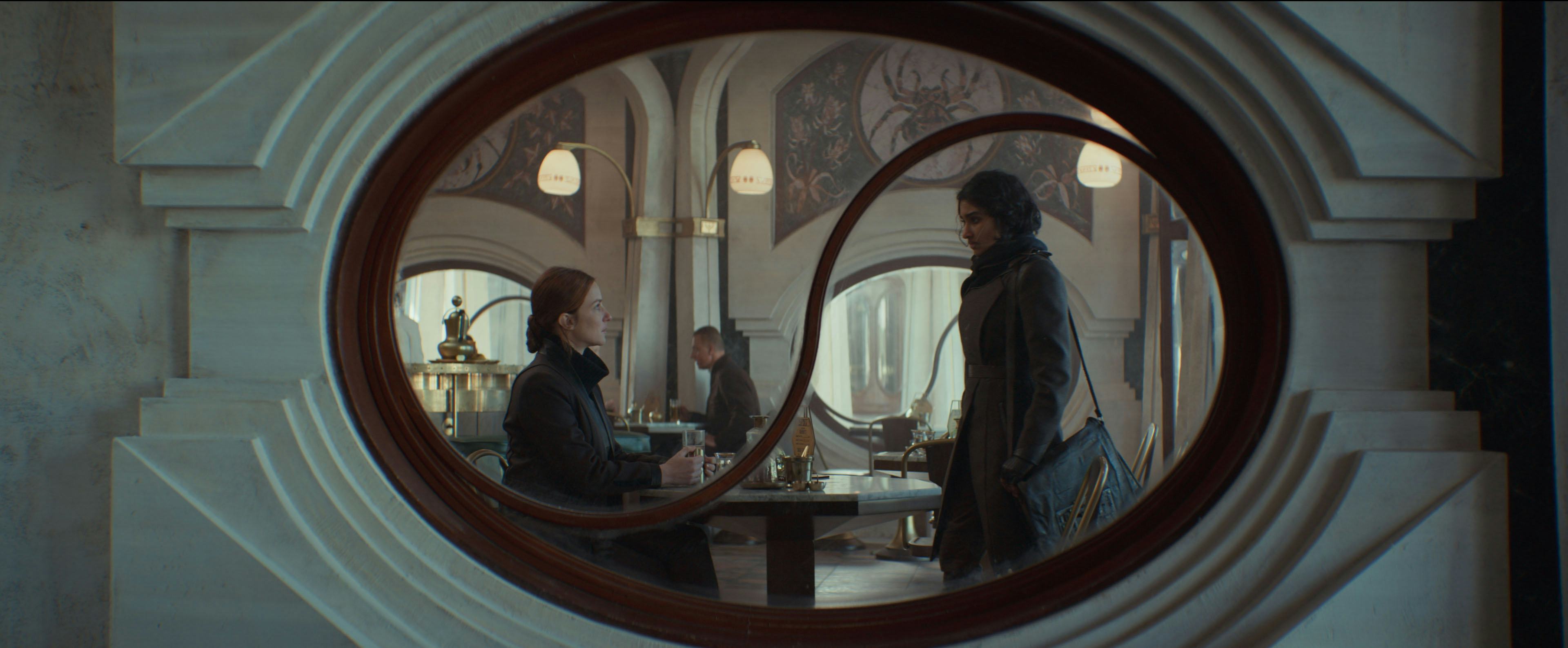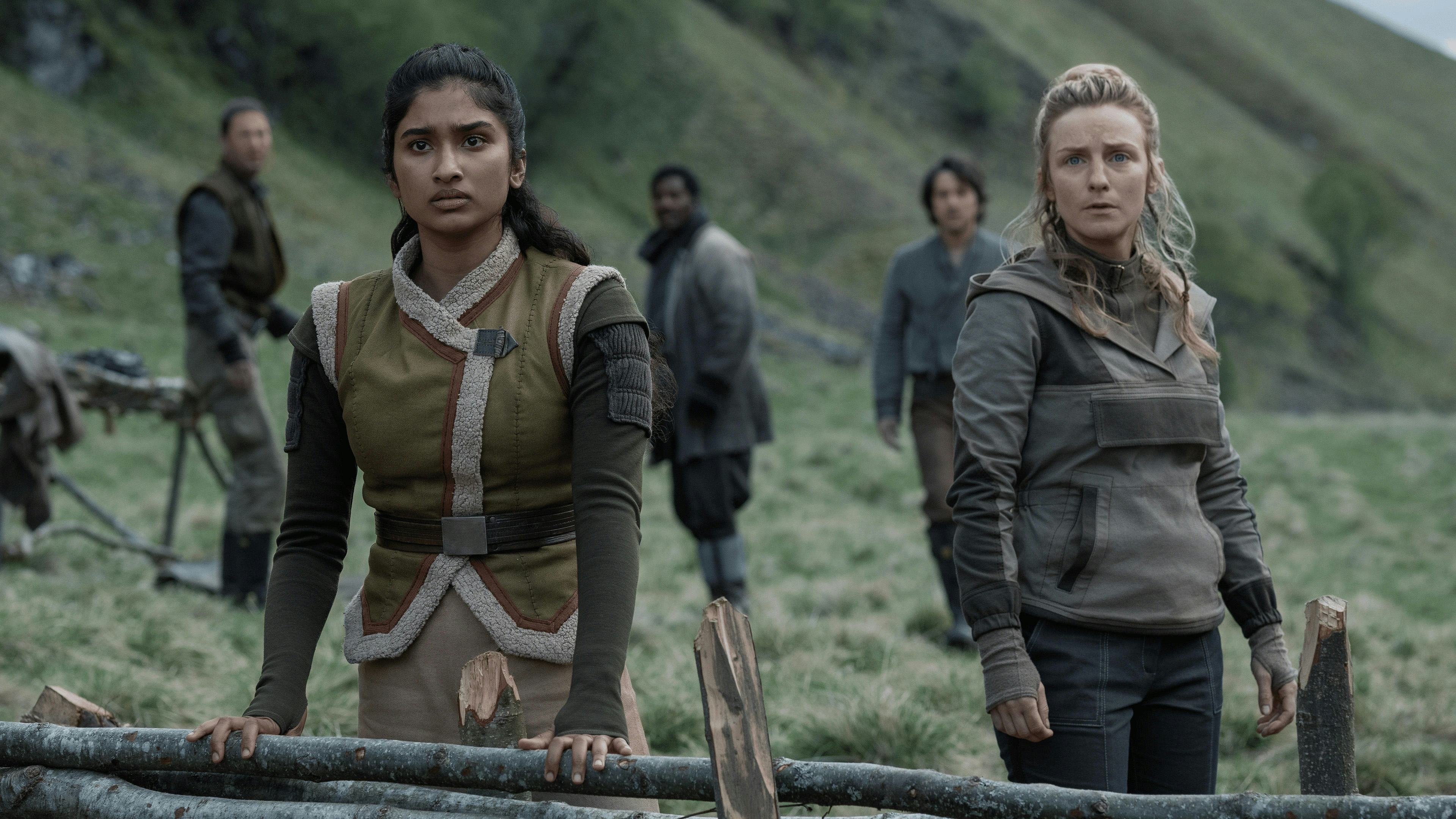
“A long time ago, in a galaxy far, far away” may just be a fancy way of saying “once upon a time...” in the Star Wars universe, but there are times where the franchise truly feels like a relic of a bygone era. Star Wars is ostensibly set in a kind of far-flung future, but the saga is classical almost to a fault. It recycles familiar beats again and again, often saddling interesting characters with fates that couldn’t be less imaginative. It’s a frustrating cycle for a franchise that desperately needs to embrace braver, bolder storytelling. Even Andor, Star Wars’ gutsiest (and most acclaimed) series, has struggled to rise above the saga’s worst habits, and its most vulnerable characters continue to suffer for its missteps.
After breaking new ground with a trove of nuanced female characters in Season 1, Andor’s second season drops the ball in a major way. It all culminates with a blindsiding ending for its most promising character, and a predictable return to the most regressive tropes in the book.
Spoilers ahead for Andor Season 2 Episode 6.

Andor’s second arc doubles down on the trouble in Ghorman, raising the stakes for the Rebellion and Empire alike. We learn that Imperial lackey Syril Karn (Kyle Soller) is now undercover for the ISB, working to coax the Ghorman Front — a yet-unorganized rebel group — to violent insurrection. Cassian Andor (Diego Luna) is likewise dispatched to suss out the burgeoning revolution on the planet. When he doesn’t like what he sees, however, he warns his handler, Luthen (Stellan Skarsgård), against pushing the rebels too fast. “They’re impatient,” Cassian says in Episode 6, and impatience only breeds mistakes. He doesn’t want to see the planet martyred just to accelerate anti-Imperial sentiments throughout the galaxy.
Unfortunately, that’s exactly the thing that Luthen wants. When Cassian bows out, he quickly puts Vel Sartha (Faye Marsay) and Cinta Kaz (Varada Sethu) into play. They’ve served Luthen well on several successful missions, but the spymaster has kept them on opposing sides of the same battle for the past two years. It didn’t help that Cinta had been putting the Rebel cause above her relationship with Vel, souring any chances of a healthy romance. As with Ghorman, their strife is a useful tool for Luthen. “We’re worth more to him separately than together,” Cinta admits.
Vel and Cinta agree to talk with Luthen about their future after their mission with the Ghorman Front. It’s supposed to be an easy, in-and-out heist — so of course it all goes horribly wrong. A Ghorman rebel disobeys Vel and Cinta’s direct orders and brings a blaster on their mission. When it accidentally goes off, Cinta is caught (and slain) by the friendly fire.

Cinta’s demise seems to come out of nowhere, and like Brasso’s (Joplin Sibtain) in Episode 3, it’s clearly meant to feel like a senseless tragedy. Vel says as much to the boy whose blaster was responsible for Cinta’s demise. “She was a warrior,” she mourns. “Because of you, some whining, simpering, foolish child… You’ll make up for this forever.”
It’s a stirring scene, one made all the more tragic given Vel and Cinta’s reconciliation earlier in Episode 6. Not all of our Rebels are destined for a happy ending — as Luthen says in Season 1, they’re fighting for a sunrise they’ll likely never see — but Cinta’s fate in particular feels like a slap in the face. Not only does it withhold a happy ending for the show’s only queer couple, reinforcing the franchise’s dismal track record for LGBTQ characters, but it also writes off a woman of color to further the emotional arc of her white counterpart.
It’s not the first time a Star Wars story has wasted its marginalized characters like this; it’s not even a first for Andor. But Vel pointing out the futility of Cinta’s demise only adds insult to injury: it may have felt clever, ironic, or meta on the page, but given the franchise’s track record, it lands with a thud here. As the stakes rise for the Rebellion, there are bound to be more casualties we may deem unnecessary. It’s the nature of revolution, after all, a subject that Andor is dedicated to exploring. But challenging your audience is one thing; stooping to regressive tropes for shock value is another entirely. It’s frustrating to watch Andor, of all things, struggle to discern the difference.







